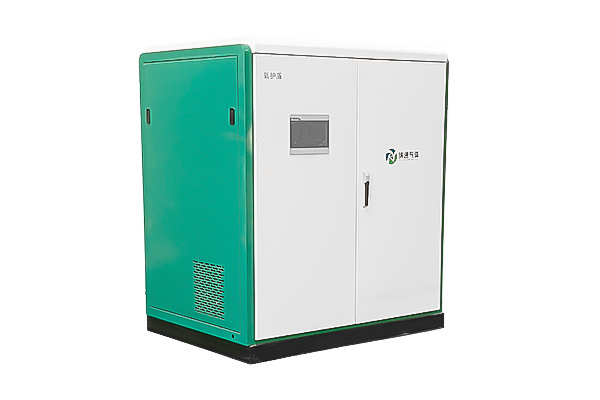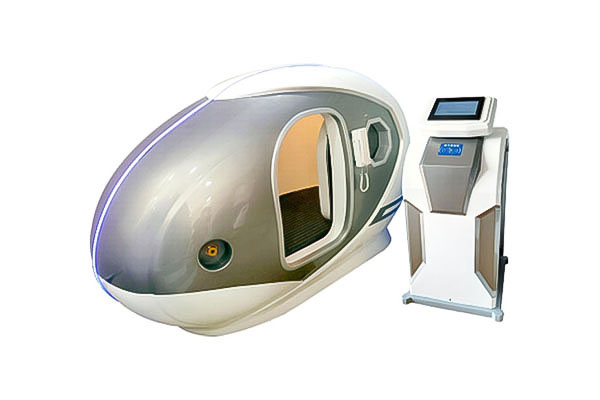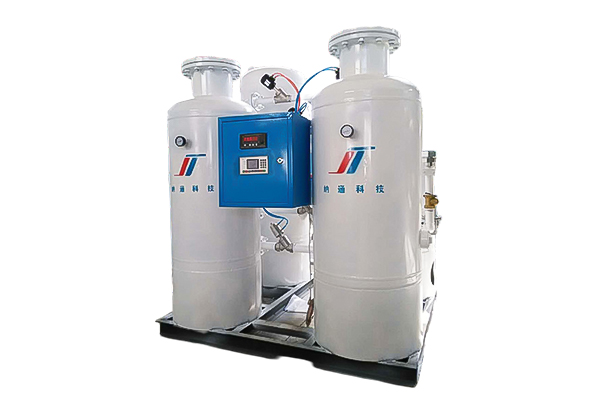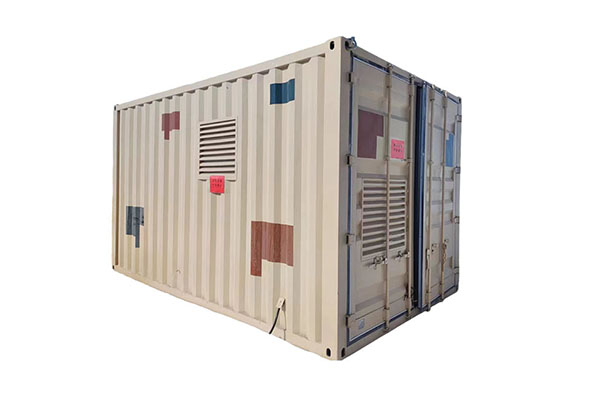What factors affect the gas purity of a nitrogen generator?
Release Time : 2025-06-16
The purity of nitrogen generator gas is affected by a variety of factors, which involve all aspects of equipment operation, from raw material input to component status, to operation and maintenance. Deviations in each link may cause fluctuations in purity. First of all, the quality of raw air is the basic factor affecting the purity of gas production. If impurities in the air, such as moisture, oil mist, and dust, are not effectively filtered, they will enter the equipment with the airflow. When these impurities come into contact with the adsorbent or membrane assembly, the activity of the adsorbent may decrease or the membrane assembly may be contaminated, resulting in poor gas separation effect, and ultimately resulting in substandard purity of the output nitrogen. Just as contaminated filter media cannot effectively purify water sources, contaminated raw air is also difficult to produce high-purity nitrogen through the equipment.
The performance status of the core components of the equipment plays a key role in the purity of the gas production. Different types of nitrogen generators have different core components. For adsorption-type nitrogen generators, the adsorption capacity of molecular sieves directly affects purity. If the molecular sieves are used for too long and become aged, or are poisoned by contact with water or oil during operation, their adsorption efficiency for impurities such as oxygen will be greatly reduced, resulting in more impurity gases being mixed into the discharged nitrogen. If the membrane components of the membrane-type nitrogen generator have problems such as material aging and membrane filament damage, the gas separation process will be disturbed, and molecules such as oxygen that should have been blocked may pass through the membrane wall and mix into the nitrogen. Just as a broken screen cannot effectively screen particles, damaged core components cannot achieve the ideal gas separation effect.
Whether the operating parameters of the equipment are set reasonably will also significantly affect the purity of the gas production. Parameters such as working pressure, temperature and gas flow need to be controlled within an appropriate range. When the working pressure is insufficient, the molecular sieve in the adsorption generator has a weakened driving force for the adsorption of oxygen, making it difficult to fully adsorb impurity gases; the driving force for the gas to pass through the membrane component in the membrane generator is insufficient, and the separation efficiency decreases. Too high a temperature will affect the adsorption capacity of the adsorbent and reduce its selective adsorption capacity; too large a flow rate will shorten the residence time of the gas in the equipment, and neither the adsorption separation nor the membrane separation process can be fully carried out. Just as when the water flow is too fast, the filter will not have time to intercept impurities. Too fast a gas flow rate will also lead to incomplete separation, which will affect the purity of nitrogen.
Whether the maintenance work is in place is an important factor in ensuring the stability of the purity of the gas produced. The equipment needs to be maintained regularly during long-term operation. For example, if the front-end air filter is not replaced in time, the accumulated impurities will clog the filter element, resulting in a decrease in the air pressure entering the equipment and insufficient flow. At the same time, the unfiltered impurities may also penetrate into the equipment and damage the core components. For the adsorption generator, if the molecular sieve regeneration process is not sufficient, the residual impurities will gradually occupy the adsorption site and reduce the adsorption efficiency; if the membrane assembly of the membrane generator lacks regular cleaning, the pollutants attached to the surface will affect the separation performance of the membrane. Just as a car engine needs regular maintenance to maintain good performance, the lack of maintenance of the nitrogen generator will gradually decline the performance of the equipment and reduce the purity of the gas produced.
The influence of the design and manufacturing process level of the equipment on the purity of the gas production cannot be ignored. Reasonable structural design can ensure that the gas flows evenly in the equipment. If the internal structure design of the adsorption tower is unreasonable, it may lead to uneven distribution of gas flow, and the molecular sieves in some areas cannot fully participate in the adsorption reaction; if the arrangement of the membrane components is not scientific, the loads of the membrane fibers in each part are inconsistent when the gas passes through, which will reduce the overall separation efficiency. If there are problems such as lax welding and insufficient component precision during the manufacturing process, gas leakage or internal short circuit may occur. For example, if the sealing of the adsorption tower is not tight, the gas that is not fully separated will be discharged directly, thereby affecting the purity of nitrogen. Just like containers with structural design defects are prone to leakage, deficiencies in equipment design and manufacturing will also become a hidden danger of purity fluctuations.
Changes in the conditions of the use environment will also affect the purity of the gas production. When the ambient temperature is too high, the heat dissipation effect of the equipment will deteriorate, the internal operating temperature will increase, and the adsorption performance of the adsorbent or the separation performance of the membrane will decrease with the increase in temperature; when the ambient humidity is too high, the moisture content in the air will increase. Even if the front-end filter works normally, it may not be completely removed due to excessive load. Excess moisture will enter the equipment and have an adverse effect on the adsorbent or membrane component. In addition, if dust and corrosive gases in the environment are not effectively isolated, they may enter the equipment through the air inlet, gradually accumulating and affecting the performance of components. Just as a bad working environment will affect people's health, a bad use environment will also interfere with the normal operation of the equipment, thereby affecting the purity of the gas production.
Whether the operation and control of the gas output link are appropriate may also affect the purity. When the gas production valve of the equipment is switched too quickly or the adjustment range is too large, it will cause a violent fluctuation in the air flow pressure. This fluctuation may cause the molecular sieve in the adsorption generator to pulverize, or the membrane assembly of the membrane generator to be damaged by impact. In addition, if there is a leak in the output pipeline, the outside air will be mixed into the produced nitrogen, directly reducing the purity; if the gas-using equipment connected to the output end has high requirements for gas flow stability, the pressure fluctuation during the operation of the equipment may cause deviations in the purity monitoring of the gas-using end. Just as the damage of the pipeline will cause impurities to mix into the water flow, the leakage of the output link will also cause nitrogen to mix into impurity gases, affecting the final purity index.







